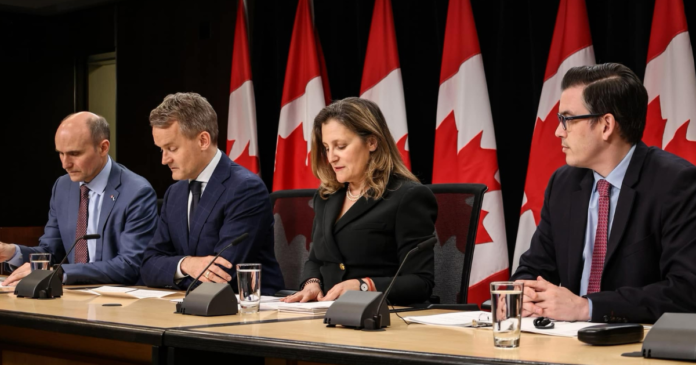“Chrystia Freeland Pushes for Capital Gains Tax Hike: A Closer Look at the Controversy”
In a bold move to increase government revenue, Deputy Prime Minister and Finance Minister Chrystia Freeland has proposed a capital gains tax hike as a means to fund critical investments in Canada. While she argues that the tax increase is necessary for the country’s economic stability, critics have voiced concerns about the potential consequences of targeting high earners.
The Proposal for a Tax Hike
Freeland’s plan involves raising the capital gains inclusion rate, affecting those who earn more than $250,000 in capital gains annually. The goal is to generate additional revenue without burdening younger generations with more debt. While the tax hike is intended to be fair and responsible, it has sparked debate over its impact on the economy and investment landscape.
Unintended Consequences
Critics of the tax hike warn that targeting productive investors could lead to divestment and capital flight from Canada. Additionally, concerns have been raised about the accuracy of the claim that only a small percentage of Canadians will be affected by the tax increase, as certain structures like trusts and corporations may also face consequences.
The Justification for Tax Fairness
Freeland emphasizes the importance of making critical investments in Canada, including initiatives like housing, healthcare, and education. She argues that asking high earners to contribute more is a necessary step towards ensuring financial stability and long-term prosperity for all Canadians. However, questions remain about the impact of such measures on economic growth and competitiveness.
Looking Ahead
As the debate over the capital gains tax hike intensifies, it is crucial to consider the diverse perspectives and potential implications of this fiscal policy. While Freeland believes that tax fairness is key to funding essential programs, critics raise valid concerns about the broader economic effects of targeting high earners. The outcome of this proposed tax increase will undoubtedly have far-reaching effects on Canada’s financial landscape and the well-being of its citizens.
In conclusion, the decision to implement a capital gains tax hike is a complex and contentious issue that requires careful deliberation and consideration of all viewpoints. Whether this measure will effectively support Canada’s economic growth and social programs, or hinder investment and innovation, remains to be seen. As the debate continues, it is essential to engage in constructive dialogue and seek common ground to ensure a prosperous future for all Canadians.”
Reference














